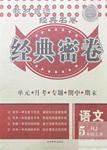题目内容
【题目】As more people use smart phones to pay bills and store personal information, strict password security has become more important than ever. A new study shows that free-form gestures–sweeping fingers in shapes across the screen of a smart phone—can be used to unlock phones. These gestures are less likely to be observed and reproduced by others than traditional typed passwords.
“All that it takes to steal a password is a quick eye,” said one of the researchers of the study. “With all the personal information we have on our phones today, improving their security is becoming increasingly necessary.” In developing a secure solution to this problem, the researchers studied the practicality of using free-form gestures. With the ability to create any shape in any size and location on the screen, the gestures were popular as passwords. Since users create them without following a template, the researchers predicted these gestures would allow for greater complexity.
The researchers carried out a create-test-retest experiment where 63 people were asked to create a gesture, recall it, and recall it again 10 days later. The gestures were captured on a recognizer system designed by the team. Using this data, they tested the complexity and accuracy of each gesture using information theory. The result of their analysis is that people are favorable to use free-form gestures as passwords.
To put their analysis into practice, the researchers then had seven students in computer science and engineering, each with considerable experience with touchscreens(触摸屏), attempt to steal a free-form gesture password by observing a phone user secretly. None of them were able to copy the gestures with enough accuracy. The gestures appear to be extremely powerful against attacks.
Though the testing is in its early stage and widespread adaptation of this technology is not yet clear, the research team plans to continue to analyze the security and management of free–form passwords in the future. They believe this is the first study to explore free-form gestures as passwords. They will soon publish their findings.
【1】What can we learn about free-form gestures?
A. They are improving mobile security in a way.
B. Users will have to make use of simple gestures.
C. They will never be copied by others.
D. Users must move their fingers in fixed shapes.
【2】The experiment in paragraph 4 is to test _________ of free - form gestures.
A. template B. application C. accuracy D. security
【3】According to the text, the researchers think that ________.
A. it is easy to steal any password with a quick eye
B. better ways of setting passwords should be developed
C. people had better not use smart phones to pay bills
D. personal information should not be stored in a phone
【4】The main purpose of the text is to ________.
A. advise people to use free-form gestures
B. discuss whether smart phones are safe
C. talk about the practicality of passwords
D. introduce the study of a new password
【答案】
【1】A
【2】D
【3】B
【4】D
【解析】试题分析:本文是一篇说明文,随着智能手机的日益普及,储存手机内的个人信息和密码的安全愈发重要。科学家研究发现,用手势或图案代替传统的密码能加强密码的保密性。
【1】A 推理判断题。根据第一段These gestures are less likely to be observed and reproduced by others than traditional typed passwords.可知,这些姿势都比传统的密码更难窥伺,更难重现,所以某种程度上能提高手机的安全性,故选A。
【2】D 细节理解题。根据第四段中None of them were able to copy the gestures with enough accuracy.可知,他们都无法准确地复制这些姿势,这也代表手机无法破解,故选D。
【3】B 细节理解题。根据最后一段...search team plans to continue to analyze the security and management of free – form passwords in the future.(研究团队计划继续分析未来的自由模式密码的安全性和管理。)可知,the research team将继续在该领域展开研究,即他们认为应研发更好的密码系统。故选B。
【4】D 主旨大意题。根据全文内容可知,本文主要讲述自由形式的手势可用来提高智能手机的安全性,例如,在智能手机的屏幕上挥舞手指形成某种图案。故选D。
【学法指导】
抓住文章主线和关键词语,归纳文章中心
要注意不是所有的段落都有主题句,有时主题句暗含在句中。阅读这样的文章,就需要自己根据文章的细节来分析,概括出段落的主题,从而推导出文章的主旨。分析的方法是:先弄清该段落主要讲了哪几方面的内容,这些内容在逻辑上有什么联系,然后加以归纳形成主题。【4】D 主旨大意题。根据全文内容可知,本文主要讲述自由形式的手势可用来提高智能手机的安全性,例如,在智能手机的屏幕上挥舞手指形成某种图案。故选D。

 作业辅导系列答案
作业辅导系列答案 同步学典一课多练系列答案
同步学典一课多练系列答案 经典密卷系列答案
经典密卷系列答案